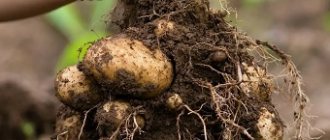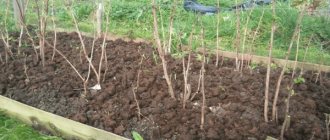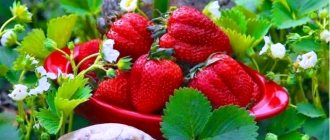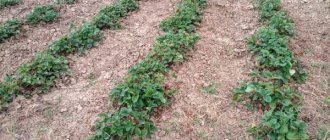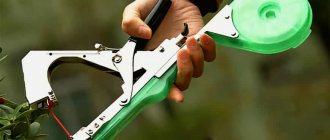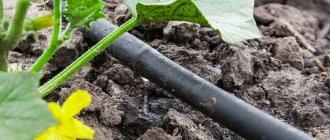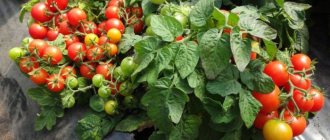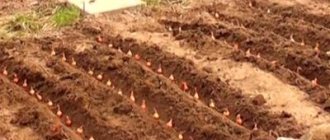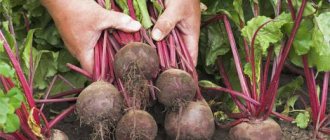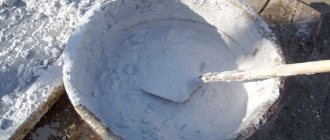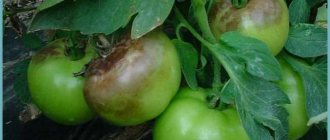The key aspect in caring for raspberries before winter is feeding. Abundant nutrition of the bushes in August-September will provide the gardener with a good harvest next year. There are several options for feeding raspberries in the fall. These are folk remedies, mineral and organic substances. The time of application of fertilizer and its quantity depend on the variation in fertilizing.
The benefits of autumn feeding
The purpose of feeding raspberries in the fall is to restore soil fertility and saturate it with mineral and organic elements. During the fruiting stage, the berry crop literally sucks all the juices out of the land area. Additional nutrition will stimulate the root system to ripen young shoots and strengthen the crop’s immunity to disease.
Without fertilizing before the cold weather, raspberry bushes will not be able to survive the winter well. The roots will be exhausted in the fight against frost and will not fully ensure the growth and development of buds, fruits, and foliage in the spring. As a result, the berries will ripen in small quantities and will be small and sour.
Signs of the need for feeding
It is necessary to feed garden and vegetable plants regularly, and make changes to the gardener’s calendar in order to accurately make calculations. But in most cases, raspberries are forgotten because of confidence in their strong immunity. In fact, the berry requires attention, although care differs from other berry crops.
The root system absorbs many useful microelements from the ground. Just like all crops, raspberries require nitrogen, potassium and phosphorus. You can determine the deficiency or excess of an element by the state of the green part and the size of the berries.
The signs are noticeable to the naked eye, and even a novice summer resident can apply them. During the inspection of the culture, pay attention to the following phenomena:
- speed of development and growth of shoots. Excessively fast - a lot of nitrogen, the intensity has decreased significantly - lack of element;
- Dry stems indicate insufficient amounts of iron and magnesium in the soil. This means that the plant doesn’t have enough of them either;
- With phosphorus deficiency, streaks and spots appear on the green part. Color: burgundy purple;
- small berries, brown leaves - potassium is urgently needed for recovery;
- thinness of the stem, poor development of the bush - correct the situation with nitrogen.
Raspberries are truly capable of producing an abundant, large harvest for a long time. She loves moisture and sun. Not at all afraid of direct sunlight.
Any gardener can make an ordinary raspberry remontant, but to do this, apply fertilizers, various organic fertilizers, replant and monitor the state of development of the crop.
Deadlines by region: table
Climatic conditions in Russian regions differ from each other. Before planning agricultural activities, check the table of agricultural technicians’ recommendations on the timing of feeding raspberry bushes in the fall.
| № | Region | Duration by months |
| 1 | Middle zone, Moscow region | September 15-30 |
| 2 | Ural | September 10-30 |
| 3 | Western Siberia | September 5-20 |
| 4 | Eastern Siberia | September 1-15 |
| 5 | Far East | August 15-September 10 |
| 6 | North Caucasus | September 20-October 10 |
| 7 | Crimea | September 25-October 15 |
The dates indicated in the table and on the map are approximate. If winter is predicted to be premature, add nutrients to the soil 5-10 days earlier. In addition, take into account the variety of raspberries: feed remontant ones after harvesting the last harvest, closer to October; varieties that bear fruit once a season, in August and again before winter.
Fertilizers should be applied to the bushes after the final picking of the berries, clearing the soil of weeds, debris and pruning the bushes.
When to feed raspberries?
Before you start feeding raspberries, you need to destroy the weeds that have grown near them. It is advisable to remove weeds manually, because digging can damage the roots of the plant, which are located close to the surface of raspberries. In addition, you need to cut out the lower shoots.
Mineral fertilizers
Gardeners respect mineral complexes for their convenience and effectiveness of use. They are especially productive to use if you know about the lack of a specific element in the raspberry soil. When nutrition is applied to prevent soil depletion and prepare the berry plant for wintering, we recommend using complex types of mineral fertilizing.
Popular varieties of inorganics are divided into 3 types:
- Nitrogen. In autumn, apply to the soil with caution, no more than 1-2 g per 1 m². If the dose is exceeded, nitrogen will provoke the growth of new shoots and the berry crop will die in winter. Among the nitrogen fertilizers are urea (carbamide), ammonium nitrate, ammonium sulfate 20-21%, 30-40 per 1 m².
- Phosphorus. They do not disrupt the growth and rest cycles of plants, so they are used until the first frost and snow. Phosphorus is necessary for berry crops to strengthen immunity, stimulate growth and increase productivity. 1 raspberry bush will require 6 g of mineral fertilizer. You need to add organic matter with the following names: “Granulated double superphosphate” (or simple), “Phosphoric acid” 10-14%, “Ammophoska” 2-3 kg per 1 m².
- Potassium. This is potassium magnesia, add 15-30 grams per bush; potassium sulfate - 20-30 g per 1 m².
Among the complex mineral fertilizers for raspberries in the fall, the following can be distinguished:
- Aquarin;
- Florivit;
- Crystalon;
- Master;
- N.P.K.
It is correct to alternate mineral fertilizers with natural fertilizers annually. If you add mullein, compost, and ash this fall, next fall buy ready-made inorganic complexes and fertilize with them.
Effective drugs
Among organics, the most effective would be the use of chicken manure and mullein.
The best mineral fertilizer to use is
- Urea and nitroammophos for nitrogen fertilizing in the spring.
- The preparation “Ideal” for summer complex feeding.
- Kristalon as a foliar fertilizer .
- In the fall, after fruiting has ended, it is best to use organic matter .
Organic fertilizers
Natural (organic) fertilizers include all natural substrates of plant and animal origin:
- Cow dung;
- Chicken droppings;
- Ash;
- Compost;
- Bone flour.
The advantage of organic fertilizers is that they are well accepted by the soil, enrich the soil with humus, and do not interfere with the life of earthworms. Thus, optimally favorable conditions for the growth of berry crops are formed. If you don’t know what to feed raspberries in the fall so that there is a good harvest next year, use any of the listed fertilizer options or combine them. But be sure to follow the dosage and rules for mixing several types of fertilizer.
Cow dung
Place fresh manure between rows before wintering. Pour warm water on top. Over the winter, the organic matter will rot and abundantly fertilize the soil with phosphorus, potassium, and nitrogen. The soil will be loose and airy. And this is important in the spring, when the degree of aeration should be high.
Important! With horse manure, you can mulch the soil under the raspberry tree in the area of mass occurrence of roots. Make the height of the nutrient layer no more than 10-15 cm.
Chicken droppings
Contains boron, potassium, calcium, phosphoric acid, sulfur, zinc. Necessary for the development of bushes and rejuvenation of shoots. You cannot use fresh chicken droppings; it will burn and destroy the root system. First, let the organic fertilizer rot, then distribute it over the raspberry tree in dry form, 6 kg per bush. Or dilute with water in a ratio of 1:30 and pour 7-8 liters under each root.
Ash
Use the remains from burning birch, spruce logs, straw, and sunflower stems. Ash will enrich the soil with peat and calcium, protect raspberries from pests, and loosen the soil. In dry form - spread over the berry garden in the following dosage: 1 cup per 1 m². The liquid solution is prepared at the rate of 1 glass of ash per 10 liters of water. Leave for 7-10 days, then pour 5 liters under each bush.
Important! Do not use ash simultaneously with preparations containing nitrogen. As a result of the chemical reaction of two fertilizers, ammonia is formed - the most dangerous element for raspberries. Raspberries will die from excess chlorine in the soil.
Compost
It is used only in rotted form until the beginning of October. Fertilizer is prepared in advance from peat, manure, weeds and leaves. Apply 10 kg under each bush, covering it with a layer of soil on top. Compost can be placed in shallow trenches in the center of the bed, not forgetting to cover the roots of the crop. This creates something like a warm coat for the bushes for a long winter.
Bone flour
This is a source of calcium, phosphorus, copper, cobalt, manganese, iodine for raspberries. A single application of bone meal in the fall is enough to nourish the soil for 8-12 months. It does not need to be diluted; it is applied dry before digging and loosening the soil, immediately after removing weeds from the garden bed. The dosage is as follows: 100g per 1 m².
What are the benefits of manure?
Opinions about using fresh manure as fertilizer are quite controversial. Proponents of manure give the following arguments:
- decomposes gradually, releasing useful substances in portions;
- contains a complex of nutrients such as nitrogen, phosphorus, potassium;
- improves the soil structure: the soil becomes loose, “breathes” better and at the same time retains moisture well.
Tip: When fertilizing raspberries with manure, use rubber gloves. When finished, wash your hands thoroughly with soap. Organic fertilizer has a specific amber, but you will have to put up with it or use a respirator.
Folk remedies
Many gardeners prefer to fertilize raspberries in the fall using natural products prepared independently according to folk recipes. Such fertilizers are no less effective.
- Banana peel. Contains a large amount of potassium. Leave the peels of 10 fruits in a bucket of water for a week and water the soil under the bushes.
- Onion peel. Take 50g of onion peelings, add hot water and leave for 10-14 days. Pour the prepared fertilizing mixture into the garden bed under the roots of the bushes. Onions are a good antibacterial agent, protect the plant from pests, and nourish the roots with potassium.
- Nettle, comfrey. Collect the grass and fill it with water (10 l), expose it to the sun and leave it to rot for 10 days. Stir occasionally. Strain and dilute with clean water 1 to 10. Pour the raspberries under the roots.
- Yeast. You will need 30 g of dry yeast, 100 g of sugar and a bucket of warm water. Mix all ingredients, let the substances dissolve for 2-3 hours. Dilute with water 5:1, water the soil in the raspberry garden.
You can fertilize raspberries with folk remedies more than once, provided that mineral and organic substances are not used.
Alarm Signals
You can determine that it’s time to fertilize raspberries with horse manure based on several signs:
- slow vegetation (leaves grow small, irregularly shaped; thin, weak shoots);
- the color of the greenery changed from emerald to light green;
- weak budding.
However, it is not recommended to exaggerate the permissible rates of fertilizer application, since this also leads to harmful consequences:
- uncontrolled growth of green mass;
- development of fattening shoots;
- The berries do not have time to ripen due to the thickened crown and remain sour and watery.
Feeding after pruning
It is necessary to cultivate the soil in the raspberry field after autumn pruning of the bushes. When the old two- and three-year-old trunks, which can no longer produce a crop and only weaken the root system, are removed from the crop, water the bed with fertilizers.
Apply potassium salt, 60-40 g per plant, and superphosphates under the plants. If you used mineral complexes last year, then this year prepare mullein or manure (bird, horse or cow) for the raspberry garden. Scatter fresh animal dung into trenches, make grooves in the center of the bed 15-10 cm deep. Use only rotted bird droppings, dilute thoroughly with water and pour under the bush.
If it is not possible to apply fertilizer, sow green manure. These are plants that will naturally replenish the vitamin reserves of the soil on their own. Mustard and phacelia seeds are suitable for raspberries.
Types and methods of preparation
To fertilize raspberries, in order to increase its productivity, it is recommended to use chicken manure in the form of:
- Infusion. Fill any container 1/3 full with fresh droppings, add water, filling the container to the brim. Stir well, cover and let steep for 2-3 days. To apply under raspberries, the infusion should be diluted with 4 parts of water. 1 bucket of the resulting solution will be enough to feed 2 m² of raspberry plantings; it should be applied directly under each bush.
- Dry litter. This type of fertilizer is dried chicken manure. It can be used at any time, simply laid out on the surface of the soil, around the trunk circles of the berry tree. Under the influence of rain and water received during irrigation, dried droppings gradually decompose, gently nourishing the soil.
- Compost. This type of fertilizer is prepared using plant residues: leaves, straw, weeds, sawdust, which are placed in layers in a compost pit. Each plant layer should be layered with fresh chicken droppings and watered on top. Thanks to the natural fermentation process, chicken manure, when decomposing, releases a large amount of heat, which accelerates the decomposition of plant residues. The compost heap laid in the spring can be used to feed raspberries in the fall.
Chicken manure compost can be used as autumn fertilizer
When transplanting in autumn
Planting new raspberry bushes is recommended by gardeners in late August - early September. The berry crop takes root and produces the first harvest faster than seedlings purchased for the plot in the spring. Additional feeding will allow the root system to adapt faster and preserve strength for wintering.
When transplanting bushes to a new location, fertilizers are applied to the hole. To prepare the nutritional mixture you need to take:
- The earth dug out from the hole;
- Rotted manure or compost;
- Peat;
- River silt;
- Or one complex mixture based on peat, nitrogen and potassium.
How to properly introduce organic matter
In order not to harm raspberries, it is necessary to correctly introduce organic elements. It is enough to follow these recommendations:
- Before applying fertilizers, water the soil thoroughly. Otherwise, there is a risk of burning the root system.
- The weather should be cloudy and not too hot. This protects against the occurrence of unwanted chemical reactions.
- Organic fertilizers should be applied with extreme caution; they should not get on the stems and foliage.
- When preparing organic-based infusions, you cannot close them too tightly, as they need air.
Tips for gardeners
Take advantage of practical recommendations from experienced agronomists on growing berry crops:
- Do not add substances containing chlorine to the soil under raspberries. A garden plant reacts to this element extremely painfully, negatively, even to the point of death.
- After fertilizing, continue to care for the bushes. Bend and cover for wintering, equip fences to retain snow, trenches to drain excess melt water.
- Apply organic fertilizers only at the roots. If manure or droppings fall on the leaves and tops of trunks, these areas on the crop will die.
- Before you start feeding, carefully inspect the berry bushes. The appearance of the plant will indicate a deficiency of certain elements in the soil. Leaves that are yellow in the middle indicate a lack of magnesium; small foliage - nitrogen deficiency; thin, weakened shoots - phosphorus feeding is necessary.
- Add boron, iron, and copper to the soil when absolutely necessary, when it is clear that these are the elements that raspberries lack for high-quality fruiting.
Features of composition and application
Chicken manure is a highly effective and widely available fertilizer of organic origin. Its composition in terms of the content of bioactive substances in some respects exceeds even cow manure.
Attention! The result of feeding raspberries with chicken droppings can be observed after 2 weeks, and the resulting effect lasts for a long time, gradually becoming more pronounced.
The effectiveness of using manure as a fertilizer for raspberry fields is explained by its rich chemical composition, including:
- macroelements vital for plants: nitrogen, potassium, phosphorus, magnesium;
- valuable microelements: zinc, boron, cobalt.
Chicken manure is a natural organic fertilizer
Being a fairly concentrated substance, chicken manure, if applied incorrectly, is quite capable of burning the berry garden, so it is important to follow certain rules when using it.
Attention! The best option for using fresh droppings as fertilizer is to prepare liquid fertilizer and compost.
In addition to freshly collected manure, dried manure can also be used to prepare liquid fertilizers. Its use does not at all reduce the value of the resulting product.
Spring bush care.
Fertilizers for rapid growth when planting raspberries are used to ensure that the crop takes root well in the garden plot. But before this event, it is necessary to improve the plants.
- In April, remove old and frozen branches, collect the remaining leaves from the soil and burn them.
- Weed overgrown weeds by hand.
This must be done carefully, trying not to damage the delicate root system of the raspberries. Loosen the soil shallowly and clear it of excess debris.
- If necessary, take measures aimed at getting rid of pests and diseases.
Gooseberry and currant bushes planted in a summer cottage also need this.
